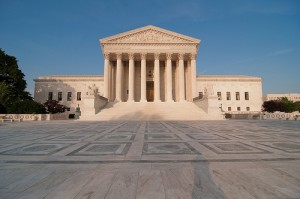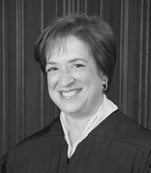Posted
12 Dec 2013 in Case Notes
In a
unanimous decision released Tuesday, the U.S. Supreme Court held that federal abstention under
Younger v. Harris, 401 U.S. 37 (1971) applies in only three “exceptional circumstances.” The Court previously identified those exceptional circumstances in
New Orleans Public Service, Inc. v. Council of City of New Orleans, 491 U.S. 350 (NOPSI) (1989). This week, it confirmed, in
Sprint Communications, Inc. v. Jacobs et al., that
Younger abstention extends no further.

The Court reaffirmed that
Younger abstention is appropriate, and federal courts should defer to state courts, only when faced with:
- “state criminal prosecutions,”
- “civil enforcement proceedings,” or
- “civil proceedings involving certain orders that are uniquely in furtherance of the state courts’ ability to perform their judicial functions.”
If none of those exceptional circumstances is present, the federal courts may not invoke
Younger abstention.
As we discussed previously,
Sprint involved two separate actions that Sprint Communications, Inc. initiated against members of the Iowa Utilities Board (IUB), one pending in Iowa state court and the other in the U.S. District Court for the Southern District of Iowa. In both actions,
 The Court reaffirmed that Younger abstention is appropriate, and federal courts should defer to state courts, only when faced with:
The Court reaffirmed that Younger abstention is appropriate, and federal courts should defer to state courts, only when faced with:






